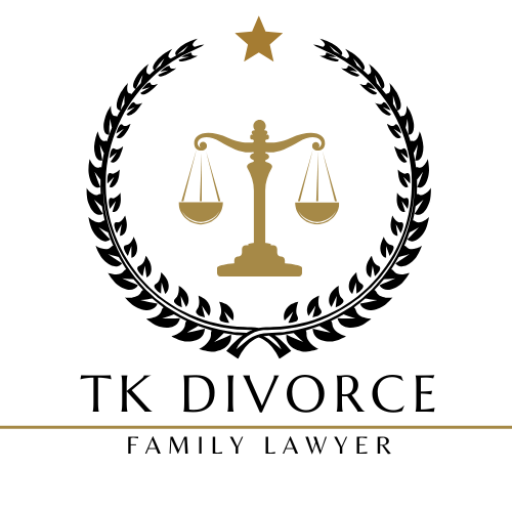#1 Best Dowry and Domestic violence lawyer in Patna

Dowry in Indian Law
In Indian jurisprudence, the issues of dowry and domestic violence are addressed through various provisions under the Indian Constitution and statutory laws. These provisions aim to protect individuals, especially women, from abusive practices, and to establish legal mechanisms for preventing and punishing offenses related to dowry and domestic violence.
Dowry refers to any property or valuable security given or agreed to be given in connection with the marriage, typically by the bride’s family to the groom’s family. While the practice of dowry has been culturally ingrained, it has led to widespread abuse, harassment, and violence, especially against women.
In Indian law, both dowry and domestic violence are taken seriously, with various statutes aimed at curbing these practices. The Constitution of India ensures equality and protection from abuse, while the Dowry Prohibition Act and the Protection of Women from Domestic Violence Act specifically address these issues.
Though progress has been made, challenges remain in enforcement and in addressing societal attitudes towards dowry and domestic violence. Courts, government agencies, and women’s rights organizations continue to work toward greater protection and justice for victims.
Constitution of India:
Article 14
- Guarantees equality before the law and equal protection of the laws, ensuring that women are treated equally and have legal protection against discriminatory practices like dowry harassment.
Article 15
- Prohibits discrimination on the grounds of sex, among other things, ensuring that women have the right to live free from exploitation, including dowry-related exploitation.
Article 21
- Provides for the right to life and personal liberty, which has been interpreted by courts to include the right to live a life free from violence, including domestic violence and dowry harassment.
Dowry Prohibition Act, 1961
- The Dowry Prohibition Act was enacted to prevent the giving and taking of dowry. This law defines “dowry” as any property or valuable security that is given or agreed to be given in connection with the marriage. The Act criminalizes the giving, taking, or demanding of dowry, and imposes penalties for those involved in such transactions.
- Section 3 of the Dowry Prohibition Act criminalizes the demanding of dowry, and Section 4 penalizes the giving or taking of dowry, with imprisonment and fines.
- The Dowry Prohibition Act has been amended several times to strengthen the penalties for dowry-related offenses and to provide better protection for women.
Indian Penal Code (IPC)
- Section 304B of the IPC deals with dowry death, providing for punishment for the death of a woman caused by dowry harassment or related violence.
- Section 498A of the IPC makes it a criminal offense for a husband or his relatives to cruelly treat a woman, including subjecting her to dowry harassment.
- Section 406 deals with criminal breach of trust in relation to dowry, especially when the dowry is not returned after the marriage is dissolved.
There are several statutes and acts that regulate divorce, particularly based on different religious practices and the legal frameworks that govern personal matters. These laws are:
Types of Dowry:
Dowry can take different forms, including:
- Cash: Money or financial assets given or demanded as dowry.
- Goods and Property: Jewelry, furniture, household goods, or even immovable property.
- Gifts: Items such as cars, expensive gifts, or land can be demanded as dowry.
- Promises: Dowry may not always involve material items but promises of financial support or other resources.
Dowry and Domestic Violence Lawyer in Patna
If you are facing issues related to dowry harassment or domestic violence in Patna, it’s crucial to seek legal assistance to protect your rights. A skilled Dowry and Domestic Violence Lawyer in Patna can provide expert guidance and representation to help you navigate these sensitive matters.
Whether it’s filing a complaint under the Dowry Prohibition Act or seeking protection under the Domestic Violence Act, a qualified lawyer ensures you get the justice and support you deserve. Contact an experienced Dowry and Domestic Violence Lawyer in Patna to safeguard your legal rights and seek relief from harassment or abuse.
Landmark Judgments on Dowry
Kusum Lata v. State (2011)
- Court: Supreme Court of India
- Key Issue: The interpretation of “dowry” and “demand for dowry.”
- Judgment: The Supreme Court emphasized that dowry demand (even if not directly leading to dowry death) could be a crucial factor in determining the culpability of accused persons under Section 498A of the Indian Penal Code (IPC) (Cruelty to women by husband or relatives). It was held that a demand for dowry, even if not explicitly stated, could be inferred from the circumstances and actions of the accused.
2. Satvir Singh v. State of Punjab (2001)
- Court: Supreme Court of India
- Key Issue: Whether dowry death charges under Section 304B IPC can be made if the harassment occurred long before the death.
- Judgment: The Court held that the dowry death provisions (Section 304B IPC) could be invoked even if there was a delay between the dowry harassment and the woman’s death, provided there is evidence that the harassment was continuous or had led to the death. This judgment clarified the scope of Section 304B, making it easier for victims’ families to bring dowry death cases.
3. Indra Sarma v. V.K.V. Sarma (2013)
- Court: Supreme Court of India
- Key Issue: Applicability of the Dowry Prohibition Act and the definition of “dowry” under Section 2 of the Act.
- Judgment: This case provided a broader definition of dowry under the Dowry Prohibition Act, stating that it includes both direct and indirect demands for gifts or property, whether or not these gifts are officially considered dowry. The judgment reinforced the idea that dowry-related crimes could include not just tangible property or money but also intangible demands, such as pressure on the bride’s family for luxury items or gifts.
4. Ramesh Kumar v. State of Chhattisgarh (2001)
- Court: Supreme Court of India
- Key Issue: Interpretation of Section 498A IPC (Cruelty to women) and whether dowry harassment can be treated as cruelty.
- Judgment: The Supreme Court held that demanding dowry or subjecting a woman to cruelty over dowry is a form of mental cruelty under Section 498A. The Court reinforced that dowry harassment, even if it does not cause physical injury, constitutes mental cruelty and can form the basis of a criminal case.

In India, several landmark judgments have shaped the legal landscape regarding dowry and domestic violence. These judgments have helped interpret and enforce the provisions of relevant laws, particularly in relation to the Dowry Prohibition Act (1961) and the Protection of Women from Domestic Violence Act (2005). Below are some key rulings that have had a significant impact on the legal treatment of these issues:
Domestic Violence in Indian Law
Domestic violence refers to any act of physical, sexual, emotional, or economic abuse that occurs within the household, especially in intimate partner relationships. It includes violence in the form of physical assault, mental or emotional abuse, threats, or economic control.
Types of Domestic Violence:
Domestic violence can take various forms, including:
- Physical Abuse: Hitting, slapping, kicking, or any form of physical assault.
- Emotional or Psychological Abuse: Verbal abuse, threats, constant humiliation, or controlling behavior.
- Sexual Abuse: Rape, marital rape (not criminalized under Indian law), and other forms of sexual violence.
- Economic Abuse: Controlling finances, preventing the woman from working, or denying access to economic resources.
- Verbal Abuse: Insults, belittling, and threats that affect the mental and emotional well-being of the victim.
Relevant Provisions in Indian Law:
- The Protection of Women from Domestic Violence Act, 2005:
- This Act provides for the protection of women from domestic violence. It covers various forms of abuse, including physical violence, emotional abuse, economic abuse, and sexual violence.
- Section 3 defines domestic violence and includes actual abuse or the threat of abuse, whether it is physical, sexual, verbal, emotional, or economic.
- Section 12 allows a woman to file a complaint to a Magistrate seeking relief, including protection orders, residence orders, and compensation orders.
- Section 18 to 23 provide for various reliefs, such as protection from the abuser, custody of children, and monetary relief, including compensation for the abuse.
- The Domestic Violence Act is a civil law that provides immediate relief to women who face domestic violence, allowing for quick intervention by courts.
- Indian Penal Code (IPC):
- Section 498A of the IPC (already discussed) also addresses cruelty by the husband or his relatives, which can include domestic violence.
- Section 376 of the IPC covers rape, including instances of marital rape (although the Indian legal framework currently does not recognize marital rape as an offense, there have been calls for reform).
- Section 323 of the IPC provides for punishment for voluntarily causing hurt and can be applied in cases of physical violence in domestic settings.
Domestic violence refers to any act of physical, sexual, emotional, or economic abuse that occurs within the household, especially in intimate partner relationships. It includes violence in the form of physical assault, mental or emotional abuse, threats, or economic control.
Landmark Judgments on Domestic Violence
1. Vishaka v. State of Rajasthan (1997)
- Court: Supreme Court of India
- Key Issue: Sexual harassment at the workplace and the need for preventive mechanisms.
- Judgment: Though not specifically about domestic violence, the Vishaka case laid the groundwork for the broader interpretation of women’s rights to protection from sexual harassment and violence. The Court issued guidelines that eventually influenced the formulation of laws like the Sexual Harassment of Women at Workplace (Prevention, Prohibition, and Redressal) Act, 2013, and the Protection of Women from Domestic Violence Act, 2005.
2. Krishna Bhardwaj v. Union of India (2016)
- Court: Supreme Court of India
- Key Issue: Protection of women from domestic violence in the context of live-in relationships.
- Judgment: This judgment made an important ruling that the Protection of Women from Domestic Violence Act, 2005 can be invoked by women in live-in relationships, which are often not officially recognized by marriage laws. The Court ruled that women in live-in relationships should not be denied protection against domestic violence, ensuring equal protection under the law for women in all forms of relationships.
3. Bhawna Katoch v. Union of India (2019)
- Court: Supreme Court of India
- Key Issue: The right to a shared household under the Protection of Women from Domestic Violence Act, 2005.
- Judgment: The Court ruled that a woman has the right to reside in the shared household under the Protection of Women from Domestic Violence Act, even if she has no legal ownership of the property. This judgment confirmed that the woman is entitled to residence in the marital home or any shared household, regardless of ownership rights, ensuring women do not face homelessness due to domestic violence.
4. D. Velusamy v. D. Patchaiammal (2010)
- Court: Supreme Court of India
- Key Issue: Whether a woman in a live-in relationship is entitled to relief under the Protection of Women from Domestic Violence Act, 2005.
- Judgment: The Supreme Court ruled that the Protection of Women from Domestic Violence Act, 2005 applies to live-in relationships but only if the relationship is “in the nature of marriage”. The Court defined such a relationship as one where the couple has lived together for a significant period, with a commitment to a long-term relationship, and other factors indicating a marriage-like bond. The judgment was significant in extending legal protection to women in live-in relationships.
5. Lata Singh v. State of U.P. (2006)
- Court: Supreme Court of India
- Key Issue: Forced marriage, domestic violence, and the constitutional right to marry a person of one’s choice.
- Judgment: In this case, the Supreme Court reaffirmed that a woman has the constitutional right to marry a person of her choice, and violence or coercion in the name of dowry or domestic pressure is illegal. The judgment highlighted the importance of personal freedom and women’s autonomy in choosing a life partner without the fear of violence or retaliation.
6. National Commission for Women v. Union of India (2006)
- Court: Supreme Court of India
- Key Issue: The relationship between dowry and domestic violence.
- Judgment: The Supreme Court in this case pointed out that dowry-related violence should be treated as a form of domestic violence under the Domestic Violence Act, 2005. The judgment called for effective enforcement of laws against dowry and domestic violence and emphasized the need for holistic support systems for victims, such as police action, counseling, and shelter.
Legal Protection and Recourse
- Women who are victims of dowry harassment or domestic violence can seek help through police complaints, court orders, and legal reliefs under the laws mentioned above.
- The National Commission for Women (NCW) and various state commissions work to protect women’s rights and offer support for those suffering from dowry-related or domestic violence.
Why you should Choose Tk Divorce & Family lawyer
Choosing Tk Divorce & Family Lawyers for dowry harassment and domestic violence cases ensures that you are represented by a team of experienced, compassionate, and skilled legal professionals who understand the nuances of family law. With their deep knowledge of relevant statutes, commitment to protecting women’s rights, and dedication to ensuring justice, they can provide you with the legal guidance and support you need to navigate these challenging situations effectively.
Whether you’re seeking immediate legal protection, justice for the harm you’ve endured, or a strategic approach to resolving family disputes, Tk Divorce & Family Lawyers offer the expertise and support to help you achieve the best possible outcome in your case.
Expertise in Family Law
- Tk Divorce & Family Lawyers specialize in family law, which covers dowry-related disputes, domestic violence, divorce, maintenance, child custody, and other matters. Their in-depth knowledge of legal provisions such as the Dowry Prohibition Act, 1961, the Protection of Women from Domestic Violence Act, 2005, and Indian Penal Code (IPC) provisions like Section 498A (cruelty) and Section 304B (dowry death) ensures that they are well-equipped to handle your case effectively.
2. Experience with Sensitive Issues
- Cases involving dowry harassment and domestic violence often require a delicate approach, as they involve deeply personal and emotional issues. Tk Divorce & Family Lawyers are known for their compassionate handling of such cases. Their experience in dealing with the emotional and legal challenges of domestic disputes helps in providing you with the support and guidance you need.
3. Track Record of Successful Cases
- Tk Divorce & Family Lawyers have a strong track record of successfully representing clients in dowry harassment and domestic violence cases. Their experience includes obtaining protection orders, custody of children, alimony, and compensation for clients who are victims of domestic abuse or dowry demands.
4. Strong Knowledge of Relevant Laws
- The firm is well-versed in the Protection of Women from Domestic Violence Act, 2005, the Indian Penal Code (IPC), and other important legislation aimed at protecting women from exploitation and abuse. They understand the nuances of these laws and know how to use them to your advantage in court.
- Tk Divorce & Family Lawyers also stay updated on recent judicial interpretations and amendments in family law, ensuring that your case is argued based on the most current legal principles.
5. Holistic Legal Support
- Dowry and domestic violence cases often require multi-faceted legal strategies—from criminal proceedings (like cases under Section 498A IPC for cruelty) to civil protection orders under the Domestic Violence Act.
- Tk Divorce & Family Lawyers offer comprehensive legal services that cover all aspects of your case, including:
- Filing FIRs and complaints with the police
- Seeking protection orders and restraining orders
- Representation in divorce, alimony, and child custody cases
- Legal counseling and advice on the best course of action
- Advocacy for compensation for emotional and physical harm
6. Understanding of the Legal Process and Court Procedures
- Cases involving dowry and domestic violence often require swift action to ensure your safety and well-being. Tk Divorce & Family Lawyers have a thorough understanding of how the court system works, from FIR filing to securing bail or protection orders, and they will guide you through each stage of the process.
- They are familiar with Family Courts, Criminal Courts, and Magistrates’ Courts, which are integral to these types of cases, and can navigate the procedural intricacies efficiently.
7. Confidentiality and Sensitivity
- Tk Divorce & Family Lawyers understand the confidentiality required in family law matters, especially when dealing with sensitive issues like dowry harassment or domestic violence. They ensure that your personal information and case details remain private, providing a safe and supportive environment for you to discuss your issues without fear of judgment or exploitation.
8. Personalized Attention and Compassion
- Every domestic violence or dowry case is unique, and Tk Divorce & Family Lawyers offer personalized attention to each client. They take the time to listen to your concerns, assess the specific circumstances of your case, and offer a strategy tailored to your needs.
- Their compassionate approach ensures that you are treated with respect, dignity, and understanding throughout the process.
9. Negotiation and Settlement Expertise
- While litigation is often necessary in dowry and domestic violence cases, many disputes can be settled through mediation or negotiation. Tk Divorce & Family Lawyers are skilled in alternative dispute resolution techniques and can help you reach a settlement that provides the best outcome without the need for prolonged litigation.
- Their negotiation skills can be particularly helpful in cases involving alimony, maintenance, or property disputes.
10. Support for Women’s Rights and Empowerment
- Tk Divorce & Family Lawyers are passionate about women’s rights and empowerment. They work to ensure that the victims of dowry harassment or domestic violence receive the full protection of the law. Whether it’s securing financial support, protection from further abuse, or fair compensation, the firm is committed to fighting for the rights and well-being of women.
11. 24/7 Availability and Emergency Support
- Domestic violence situations can escalate quickly, and victims may need immediate legal intervention. Tk Divorce & Family Lawyers are known for their 24/7 availability, offering emergency legal support when you need it most, whether it’s to file a police complaint, seek an urgent protection order, or advise on your next steps.

Services Provide By Us
Alimony and Maintenance in Patna
Contact best divorce lawyer Patna
Court Marriage in Patna
Divorce Advocate in Patna
Divorce Under Muslim Personal Law
Dowry and Domestic Violence
Inter Religion Marriage in Patna
Inter-Caste Court Marriage In Patna
Connect With Our Social media
Advocate Tabish Anmad
https://www.linkedin.com/in/advocate-tabish-ahmad-667015326
Our Legal Networks
Best Tax Law Firms in Bihar
List of all Honoble High Courts
Search Your Case
About Us
Our Presence On Social Media
What is considered dowry under Indian law?
Dowry includes any property, money, or valuable gifts demanded or given in connection with a marriage. It is prohibited under the Dowry Prohibition Act, 1961.
How can I file a dowry harassment case in Patna?
You can file a complaint with the local police station, the Women’s Cell, or the Magistrate under Section 498A of the IPC and the Dowry Prohibition Act.
What documents are required to file a dowry harassment case in Patna?
Documents include: Marriage certificate
Evidence of dowry demand (messages, recordings, or witnesses)
Medical reports in case of physical violence.
How can I file a domestic violence case in Patna?
You can file a complaint with the Magistrate, Protection Officer, or police under the Domestic Violence Act.
What protection can the court provide in domestic violence cases?
The court can issue: Protection orders
Residence orders
Monetary relief
Custody orders
Compensation.
What documents are needed to file a domestic violence case in Patna?
Documents include: Proof of abuse (medical reports, photographs)
FIR copy (if filed)
Marriage certificate (if applicable).
Is domestic violence limited to married couples?
No, domestic violence laws protect women in live-in relationships and family setups as well.
Can a man file a domestic violence case in Patna?
The Domestic Violence Act is specifically designed for women. However, men can file complaints under other sections of the IPC for similar offenses.
What is the punishment for domestic violence in Patna?
The punishment includes imprisonment, fines, and compensation to the victim, depending on the severity of the case.
Can domestic violence cases be settled out of court?
Yes, parties can opt for mediation or mutual settlement to resolve disputes.
What is dowry death under Indian law?
Dowry death occurs when a woman dies due to harassment or cruelty by her husband or in-laws over dowry demands within seven years of marriage (Section 304B of IPC).
What is the punishment for dowry death?
Dowry death is a cognizable and non-bailable offense with punishment ranging from 7 years to life imprisonment.
How can I file a dowry death case in Patna?
A complaint can be filed at the local police station or directly with the court under Section 304B of the IPC.
What evidence is needed for a dowry death case?
Evidence may include: Post-mortem reports
Witness statements
Evidence of dowry demand and harassment
Who can file a dowry death case?
The victim’s family or any aggrieved party can file a dowry death case.
Can dowry death cases be compounded?
No, dowry death is a serious offense and cannot be settled privately
How can I defend myself against a false dowry case in Patna?
Steps include: Hiring an experienced lawyer.
Gathering evidence to prove innocence (e.g., no history of harassment or dowry demands).
Filing a counter-complaint for defamation or malicious prosecution.
Can I file a counter-case if falsely accused of dowry harassment?
Yes, you can file a case under Section 211 of the IPC for false charges or defamation.
What should I do if the police refuse to investigate a false dowry case?
You can approach the court and file a petition for an independent investigation.
Can false dowry cases lead to imprisonment without trial?
While arrests can occur, the accused can apply for anticipatory bail to prevent imprisonment without trial.
What is the punishment for filing a false dowry case?
Filing a false dowry case can lead to imprisonment of up to 2 years and/or a fine under Section 211 of the IPC.
How can I prove that a dowry case is false?
Evidence such as bank statements, call recordings, or witness testimony proving no dowry demand or harassment occurred can help.
Can a false dowry case be quashed by the court?
Yes, the High Court can quash a false dowry case if it finds no merit during preliminary investigation.
How long does it take to fight a false dowry case in Patna?
The duration depends on the complexity, evidence, and court proceedings, but a skilled lawyer can expedite the process.
Do I need a lawyer to file or defend a dowry case in Patna?
Yes, hiring a lawyer ensures proper representation and adherence to legal procedures.
How can I find the best lawyer for dowry or domestic violence cases in Patna?
Look for a lawyer with expertise in family law, strong client reviews, and a proven track record in similar cases.
Can mediation be used to resolve dowry or domestic violence cases?
Yes, mediation can help parties reach a settlement without prolonged litigation.
Are dowry and domestic violence cases filed together?
Often, these cases are interconnected and can be filed simultaneously under multiple legal provisions.

Get a Free Consultation
